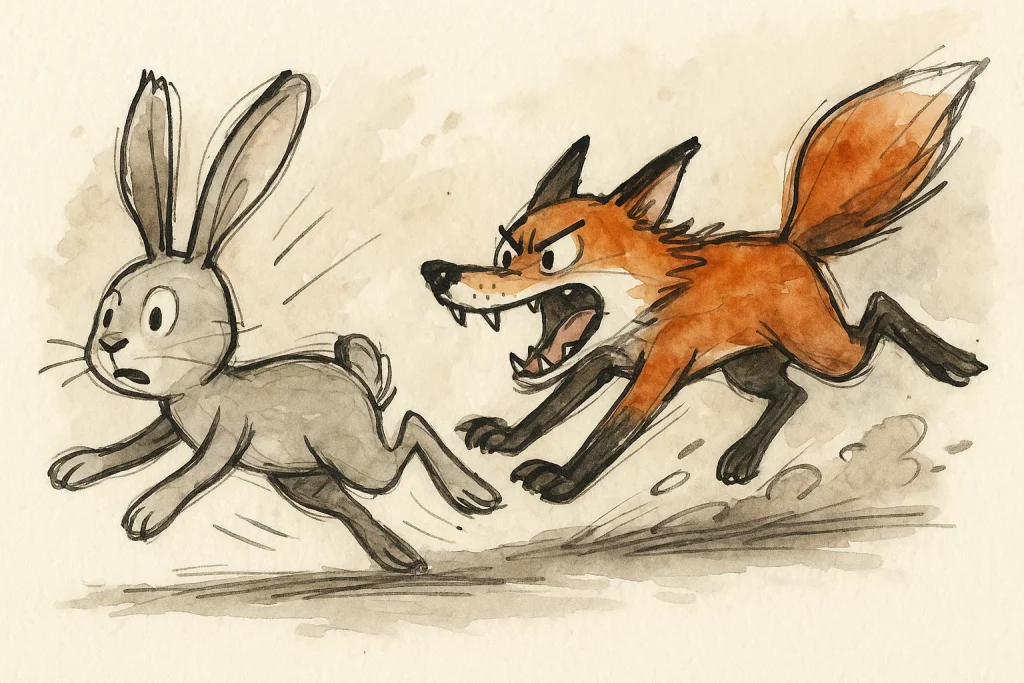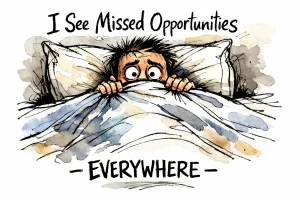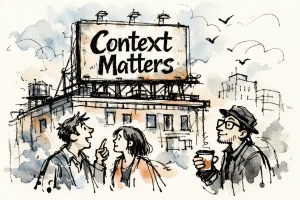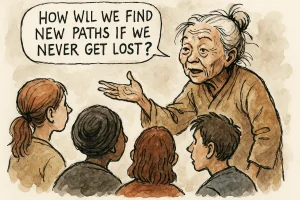
Charlie Munger used a simple image to explain why some people go all out while others move slowly: the rabbit runs faster than the fox because it runs for its life… the fox runs for dinner. In practical terms, performance isn’t determined just by talent or discipline – it’s the size of the consequence. The higher the cost of not doing something, the more likely you are to do it.
How This Changes the Way You Work?
- Motivation doesn’t fall from the sky: it appears when there’s real commitment, a meaningful deadline, and people counting on you.
- Consequence beats intention: “it would be nice to finish in September” loses to “30 clients already paid and expect delivery in September.”
- Asymmetry matters: if failure has no cost, you postpone. When failure has a price, you act.
Why You Know What to Do… and Don’t?
- Soft goals: generic, without dates or owners.
- Zero cost of delay: if you don’t deliver, nothing changes.
- Giant tasks: the brain avoids what it can’t visualize.
- Hostile environment: phone buzzing, interruptions, scattered materials.
- Distant reward: everything seems too far away to start today.
How to Generate Motivation (Without Drama or Clichés)?
- Turn desire into commitment: Write what you will deliver, for whom, and when. Better: inform those who depend on it. Public commitment drives action.
- Put something at stake – healthy: Pre-sale, answer – a pair of accountability partners, or a donation if you don’t deliver. Small consequences change behavior.
- Break tasks into 50-minute blocks: Swap “work on the project” for “produce 2 pages of chapter 3.” Starting becomes simple; finishing becomes possible.
- Protect a daily focus window: One uninterrupted block is more valuable than scattered hours. Phone out of sight, tabs closed, door shut.
- Create a visible scoreboard: Count deliveries, not hours. Proposals sent, pages written, calls made. Visible progress fuels the next step.
- Bring feedback closer: Make a pilot, minimum version, draft for someone to review. Real reaction generates real energy.
- Choose your circle carefully
People who hold you accountable respectfully, celebrate your delivery, and don’t buy excuses help you stay on track.
Direct Examples
- Study: “pass the exam” becomes “40 questions per day + mock test on Saturday,” with a peer correcting.
- Health: “start running again” becomes “register for a race in 8 weeks + scheduled workouts + accountability partner.”
- Business: “launch product” becomes “offer to 20 clients with prepayment and 30-day delivery.”
Common Traps
- Waiting for motivation to start: motivation usually arrives after you begin.
- Perfectionism: a simple version delivered today is worth more than a perfect one that never leaves the desk.
- Unfair comparison: use someone far ahead as a reference for the path, not as a measure of your value.
A 7-Day Plan
- Day 1: choose a goal and describe the specific deliverable with a date.
- Day 2: inform those who depend on it and agree on the final format.
- Day 3: list four minimal steps; complete the first in 50 minutes.
- Day 4: remove two obstacles (notifications, missing materials, noise).
- Day 5: update the scoreboard and share with your accountability partner.
- Day 6: deliver a partial version to someone trustworthy.
- Day 7: review what worked, adjust the plan, and schedule the next three blocks.
For Leaders
- Turn team goals into deliverables with owner, date, and definition of done.
- Provide autonomy within limits: authority to decide up to X, within Y, measured by Z.
- Replace long talks with short rituals: 20-minute weekly review (fact, impact, next step).
Why does this matter?
Because motivation is consequence engineering, not magic. When you create a context where not delivering hurts and delivering is visible, action no longer depends on mood – it depends on method. This reduces procrastination, increases consistency, and transforms “I’ll do it someday” into “done today” – repeated, day after day.






Wow, this article is good, my sister is analyzing such things, thus I am going to inform her. https://tiktur.ru/